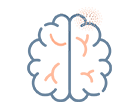Dystonia Precision Panel
Dystonia is a heterogeneous movement disorder featuring sustained or intermittent muscle contractions causing abnormal, often repetitive movements, postures or both. Dystonic movements are typically patterned and twisting, even tremulous.




